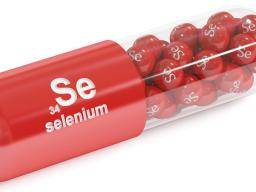Medically reviewed by Harshil Matta, DO — Written by Jill Seladi-Schulman, Ph.D. on September 8, 2020
Your liver is a large organ that’s found in the upper right-hand side of your abdomen. It has several functions that are critical to your health, including:
- Detoxification. Your liver works to break down drugs, alcohol, and other harmful substances in order to clear them from your blood.
- Bile production. Your liver produces a substance called bile that helps you digest fats and absorb vitamins in the food you eat.
- Energy storage. Your liver can store extra glucose in the form of glycogen, which can be converted back into glucose when you need additional energy.
Several substances and conditions can damage your liver and potentially lead to scarring. When scar tissue accumulates in your liver, it can replace healthy liver tissue. This means that your liver has to work harder to do its job.
In its early stages, it may be possible to reverse liver damage. In fact, there are several ways you can help give your liver a rest and prevent permanent damage.
In this article, we’ll look at the steps you can take to improve the health of your liver.
What can cause liver damage?
Alcohol is a leading factor in liver damage. During moderate alcohol consumption, enzymes in your liver work to effectively break down alcohol.
However, when you drink too much alcohol, it can’t be broken down as quickly.
Alcohol and its byproducts can damage liver cells and lead to an increase in inflammation in your liver. Alcohol can also inhibit the breakdown of fats, leading to an accumulation of fat in your liver (fatty liver).
Alcohol isn’t the only factor that can lead to liver damage. Other potential causes of liver damage include:
- infections affecting the liver, such as hepatitis A, hepatitis B, and hepatitis C
- autoimmune conditions, such as autoimmune hepatitis and primary biliary cholangitis
- accumulation of excess fat in the liver that’s unrelated to alcohol consumption (nonalcoholic fatty liver disease)
- some types of medications or supplements, including acetaminophen (Tylenol), certain antibiotics, and ma huang (ephedra)
- genetic conditions, like hemochromatosis and Wilson’s disease
- exposure to industrial chemicals
- liver cancer, or cancer that starts elsewhere and spreads to the liver
What are the early signs of liver damage?
The early stages of liver damage may not have any symptoms. When symptoms are present, they may include:
- pain or swelling in the upper right-hand part of your abdomen
- loss of appetite
- unexplained weight loss
- fatigue
- nausea or vomiting
It’s important to be able to recognize the early signs of liver damage so that you can take steps to improve your live health and prevent additional damage.











